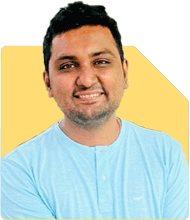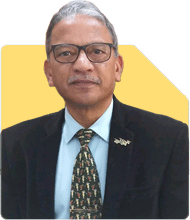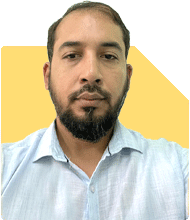Jobless and 34: Feeling Lost?
Maxim Emmanuel | Answer |Ask -Follow
Soft Skills Trainer - Answered on Jul 23, 2024
An alumnus of the Xavier Institute of Management and Research, Mumbai, Maxim has over 30 years of experience in training young professionals and corporate organisations on how to improve soft skills and build interpersonal relationships through effective communication.
He also works with students and job aspirants offering career guidance, preparing them for job interviews and group discussions and teaching them how to make effective presentations.... more

I am 34,no job,help me.
I understand what you are going through but I need some details of your qualifications and aptitude or skills.
However, I am advising you blind of facts.
Design an attractive resume not more than just 2 pages go directly to company websites and there in go to careers apply for job's.. having said this.. It's a long drawn out procedure.
Now plan B, go out with your resume and meet potential companies in and around your area.. This is a faster method.
If you do need further professional advice happy to assist
https://m.me/maxim.emmanuel.2024
You may like to see similar questions and answers below
Abhishek Shah | Answer |Ask -Follow
HR Expert - Answered on Jan 07, 2024
Nitin Sathe | Answer |Ask -Follow
HR, Recruitment Expert - Answered on Sep 17, 2023
Aasif Ahmed Khan | Answer |Ask -Follow
Tech Career Expert - Answered on Jul 02, 2024
Nayagam P P |7367 Answers |Ask -Follow
Career Counsellor - Answered on Jun 29, 2025
Nayagam P P |7367 Answers |Ask -Follow
Career Counsellor - Answered on Jun 29, 2025
Nayagam P P |7367 Answers |Ask -Follow
Career Counsellor - Answered on Jun 29, 2025
Prof Suvasish Mukhopadhyay |1955 Answers |Ask -Follow
Career Counsellor - Answered on Jun 29, 2025
Prof Suvasish Mukhopadhyay |1955 Answers |Ask -Follow
Career Counsellor - Answered on Jun 29, 2025
Prof Suvasish Mukhopadhyay |1955 Answers |Ask -Follow
Career Counsellor - Answered on Jun 29, 2025
Prof Suvasish Mukhopadhyay |1955 Answers |Ask -Follow
Career Counsellor - Answered on Jun 29, 2025
Prof Suvasish Mukhopadhyay |1955 Answers |Ask -Follow
Career Counsellor - Answered on Jun 29, 2025
Prof Suvasish Mukhopadhyay |1955 Answers |Ask -Follow
Career Counsellor - Answered on Jun 29, 2025
Prof Suvasish Mukhopadhyay |1955 Answers |Ask -Follow
Career Counsellor - Answered on Jun 29, 2025





















